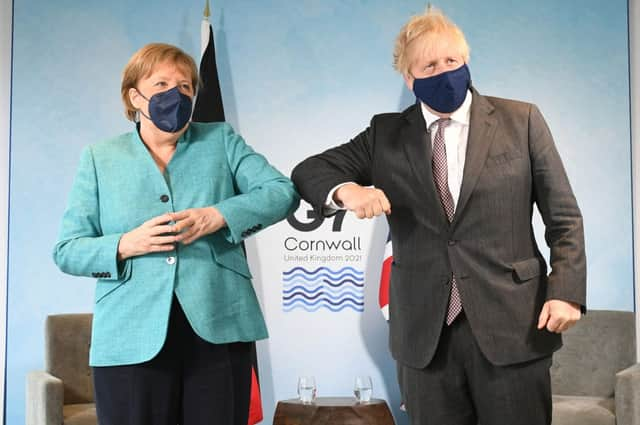This is how the G7 countries plan to stop future pandemics in the first 100 days


Leaders from the G7 will commit to a new plan to prevent future pandemics within the first 100 days.
The world’s leading democracies gathered in Cornwill will agree to the “Carbis Bay Declaration”, promising a series of measures designed to prevent a repeat of the Covid-19 pandemic.
First 100 days ‘are crucial’
Advertisement
Hide AdAdvertisement
Hide AdThe UK will create a new animal vaccine centre aimed at preventing future diseases from crossing from animals to humans.
The UK government’s chief scientific adviser Sir Patrick Vallance and philanthropist Melinda French Gates will also present the findings from their work on pandemic preparedness partnership to the leaders of the G7 nations and guests.
The Carbis Bay Declaration will incorporate the recommendations of their findings, which highlight that the first 100 days after the identification of an epidemic threat are crucial to changing its course and preventing it from becoming a full scale pandemic.
The leaders of the G7 – the UK, US, Canada, Japan, France, Germany and Italy – will commit to measures aimed at slashing the time taken to develop and license vaccines, treatments and diagnostics for any future disease to under 100 days.
Advertisement
Hide AdThey will also promise to reinforce global surveillance networks and genomic sequencing capacity and support reforming and strengthening the World Health Organisation
‘Prevent a pandemic like this from ever happening again’
Advertisement
Hide AdBoris Johnson said: “In the last year the world has developed several effective coronavirus vaccines, licensed and manufactured them at pace and is now getting them into the arms of the people who need them.
“But to truly defeat coronavirus and recover we need to prevent a pandemic like this from ever happening again. That means learning lessons from the last 18 months and doing it differently next time around.
“I am proud that for the first time today the world’s leading democracies have come together to make sure that never again will we be caught unawares.”
Millions in funding
Advertisement
Hide AdThe coronavirus which causes Covid-19 is thought to have crossed from animals to humans, becoming a zoonotic disease.
It is hoped the new UK Animal Vaccine Manufacturing and Innovation Centre at The Pirbright Institute in Surrey will stop new animal-borne diseases before they put people at risk.
Advertisement
Hide AdThe centre will be backed by £10 million from the UK Government and £14.5 million from the Bill and Melinda Gates Foundation.
The centre will draw on Pirbright’s world-leading expertise to accelerate the delivery of vaccines for livestock diseases.
Advertisement
Hide AdThese pose a risk to people if they mutate to become transmissible to humans and can devastate agriculture.
The centre will rapidly assess promising new technologies in the field, and develop and test novel vaccines for emerging diseases.
World Health Organisation ‘welcomes’ Carbis Bay Declaration
Dr Tedros Adhanom, director general of the World Health Organisation, said: “We welcome the Carbis Bay Health Declaration, particularly as the world begins to recover and rebuild from the Covid-19 pandemic.
Advertisement
Hide Ad“Together we need to build on the significant scientific and collaborative response to the Covid-19 pandemic and find common solutions to address many of the gaps identified.”
Advertisement
Hide AdProfessor Bryan Charleston, director and CEO of Pirbright, said: “There is a global unmet need to accelerate the development of vaccines from the laboratory to provide effective products for livestock keepers to control disease in their animals.
“Preventing disease by vaccination will help secure food supplies and so improve human health and welfare.”
Additional reporting by PA.